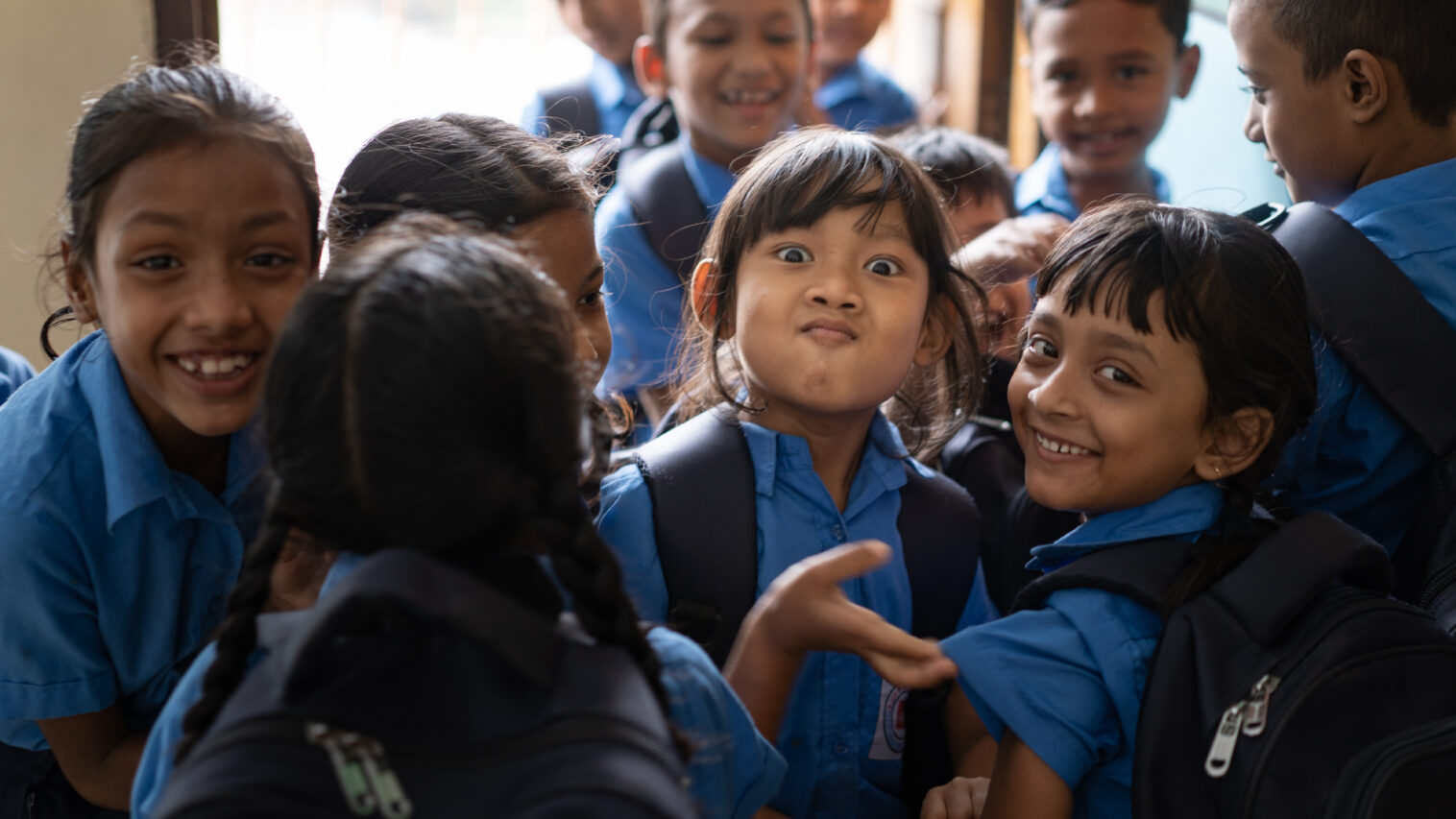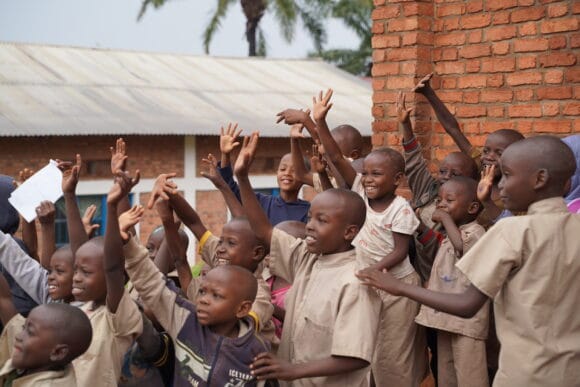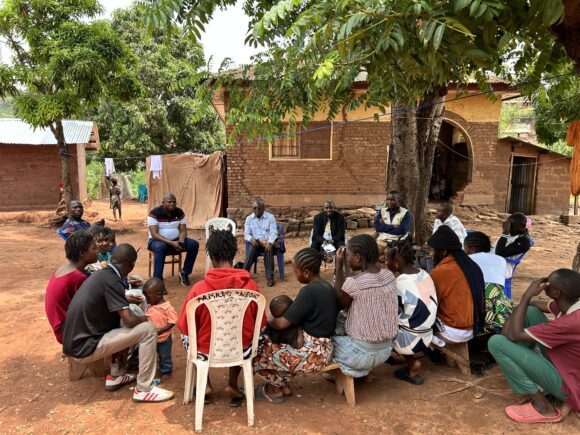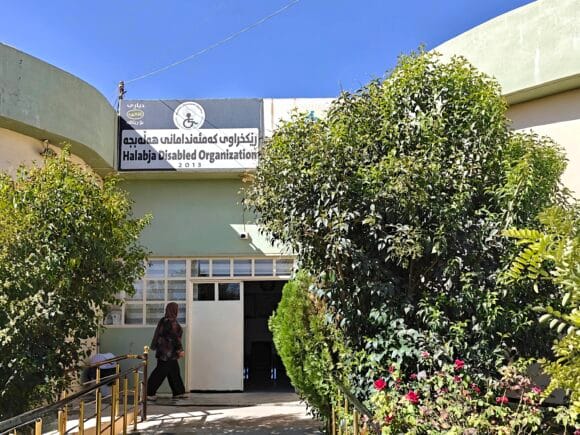These active primary school girls have a clear plan for the future and a desire to change the harmful practices in their community. Both of them have seen some of their friends from school being married off at an early age.
12-year-old Saria and Autry sit at a table in the library of the Joy & Hope School. Both girls wear blue school uniforms. Long dark hair is beautifully braided and tied with a ribbon. They have just finished a writing assignment on children’s rights. Despite their young age, they know them well. Autry explains that every child has the right to have their basic needs met. Families and society should ensure that children are doing well.
The rights of children are not yet being realised in our community.
“But the rights of children are not yet realised in our community. People don’t know what they are, and there are many reasons for this,” Autry says.
The girls mention education and a safe home as basic needs that are not met. Many children are forced to work and some even end up involved in the drug trade. Autry and Saria know that if a girl is from a poor family and they cannot afford to send her to school, the family often has only two options: put her to work or marry her.
“In those cases the girl has a lack of everything. In that way, children’s rights have a lot to do with child marriage”, the girls explain.
Luckier than their friends
Autry and Saria, who live in a slum in Dhaka, the capital of Bangladesh, are lucky. At school, they have learned about children’s rights as well as the harm that can come from child marriage. In this way, they have the opportunity to advocate for their own rights. However, many children do not know their rights and therefore cannot fight for them.
I know a lot of friends who have had to be married under the age of 18 and that’s not okay.
“I know a lot of friends who have had to be married under the age of 18 and that’s not okay. Someone under the age of 18 is a child,” Saria says in a huff.
Saria continues that after getting married, the new family and environment create a lot of emotional pressure for the girl. They live in a community where the understanding of the harmfulness of some traditions like child marriage is not yet good enough. However, through children, awareness spreads and through other work Fida does in the community, opportunities for families increase.
Both girls dream of becoming doctors. Autry is also considering becoming a writer as another option. After the eighth grade, both plan to continue their studies. Both girls would have dropped out of school a long time ago if they didn’t have the support of sponsors from Finland. Now they both have a plan for their lives.
“If our parents can’t cover all the costs of our education, we can work as tutors for younger people alongside our studies and earn additional money for medical school”, they explain enthusiastically.
Even one child marriage is one too many
You can help prevent child marriage in Bangladesh and enable girls to get an education. By donating to the Eväät elämään campaign, you support Fida’s long-term work in Bangladesh.
Donate
- MobilePay to the number 76551
- Donate €20 by texting FIDA20 to 16155
- By bank transfer: Fida International ry. IBAN account number: FI41 228 718 0000 5256, Reference number: 558002



